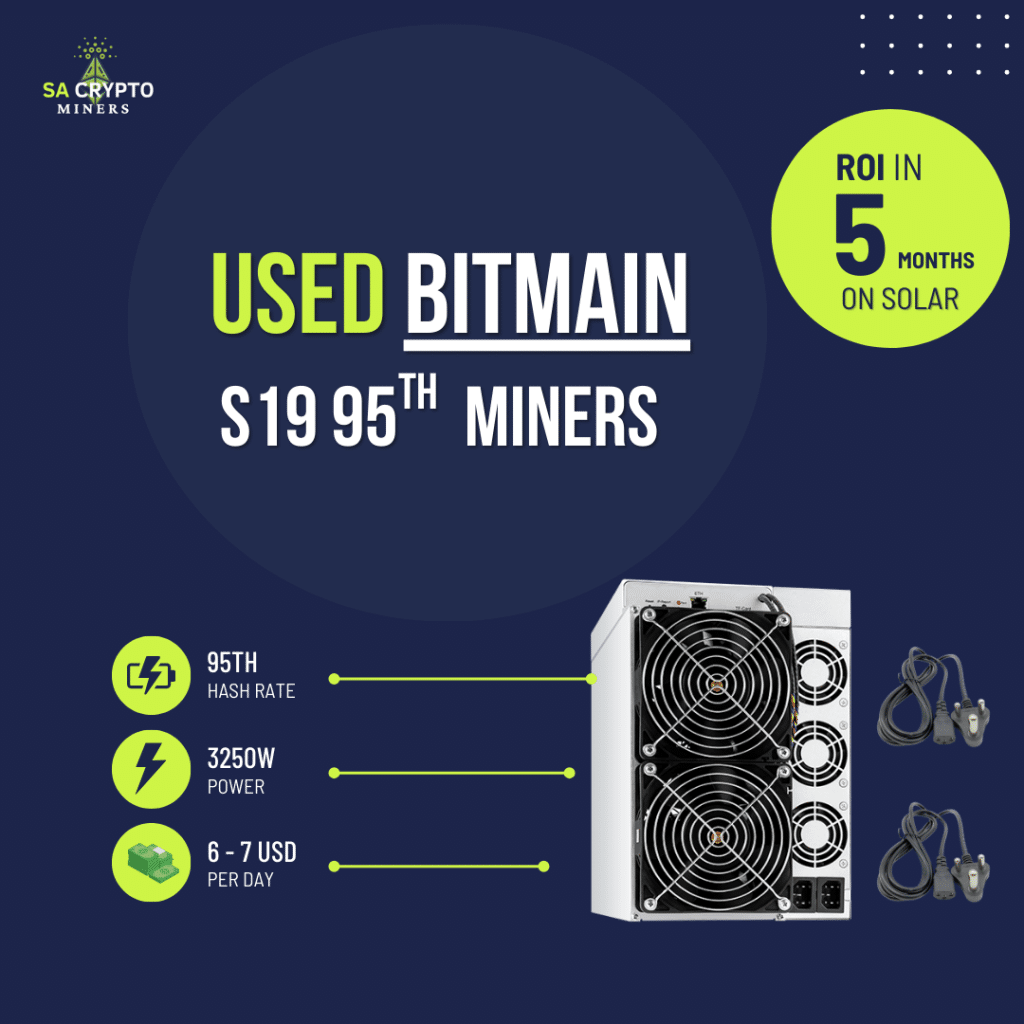South Africa’s crypto mining industry is experiencing a remarkable boom, attracting investors and enthusiasts alike. With the increasing popularity of cryptocurrencies, the demand for mining operations has surged in the country. In this comprehensive guide, we will take you through the ins and outs of the crypto mining industry in South Africa and equip you with the knowledge and strategies you need to succeed.
Understanding Cryptocurrency Mining
Cryptocurrency mining is the process by which transactions are verified and added to the public ledger known as the blockchain. This complex task requires significant computational power, and miners compete to solve cryptographic puzzles. The first miner to solve the puzzle is rewarded with a certain amount of cryptocurrency, which incentivizes the mining process. Essentially, mining serves two primary purposes: it secures the network and introduces new coins into circulation.
In the world of cryptocurrency, mining is not only a technical endeavor but also a financial investment. Miners need to consider their electricity costs, hardware expenses, and potential returns on investment. The profitability of mining can fluctuate based on various factors, such as the price of the cryptocurrency being mined, the mining difficulty, and the efficiency of the mining setup. As such, understanding the fundamentals of mining is crucial for anyone looking to enter this field.
Furthermore, mining is impacted by the broader market trends and technological advancements. The introduction of more efficient algorithms and hardware can enhance mining operations, while regulatory changes can affect the viability of certain cryptocurrencies. Thus, a comprehensive understanding of cryptocurrency mining is essential for maximizing profits and navigating the continually evolving landscape of this industry.
The Rise of Crypto Mining in South Africa
Over the past few years, South Africa has emerged as a significant player in the global cryptocurrency mining scene. This growth can be attributed to various factors, including the country’s relatively low electricity costs and a tech-savvy population. Many South Africans have recognized the potential of cryptocurrencies as an investment opportunity, leading to a surge in local mining operations. As more individuals and businesses enter the market, the mining industry continues to expand rapidly.
South Africa’s geographical location also plays a role in its mining popularity. The country has abundant natural resources, including renewable energy sources such as solar and wind, which can be harnessed for mining operations. This access to sustainable energy is becoming increasingly important as concerns about the environmental impact of mining practices grow. Consequently, many miners are now exploring eco-friendly alternatives to traditional energy sources, contributing to the rise of green crypto mining initiatives.
Moreover, the increasing acceptance of cryptocurrencies among South African businesses is fueling the demand for mining. As more companies begin to accept digital currencies as a form of payment, the need for mining operations to support these transactions becomes more pronounced. This trend not only solidifies the role of miners in the ecosystem but also encourages further investment in mining infrastructure throughout the country.
Benefits and Challenges of Crypto Mining in South Africa
The crypto mining industry in South Africa offers a myriad of benefits for those looking to enter the space. One of the most significant advantages is the relatively low cost of electricity compared to other regions, which is crucial for miners who require substantial power to operate their rigs. This cost-effectiveness can greatly enhance profit margins, allowing miners to achieve better returns on their investments. Furthermore, the growing community of miners and enthusiasts creates an environment ripe for collaboration and knowledge sharing.
However, the industry is not without its challenges. One of the most pressing issues is the volatility of cryptocurrency prices, which can dramatically impact profitability. Miners often find themselves at the mercy of market fluctuations, making it difficult to predict returns on investment. Additionally, the technical knowledge required to set up and maintain mining rigs can be daunting for newcomers, posing a barrier to entry for those without a background in technology.
Regulatory uncertainty also presents a challenge for crypto miners in South Africa. While the government has not outright banned cryptocurrencies, the legal landscape remains somewhat ambiguous. This uncertainty can hinder potential investments and create anxiety among miners regarding compliance with local laws and regulations. As the industry matures, it is crucial for miners to stay informed about legal developments and adapt their operations accordingly to navigate these challenges effectively.
Getting Started with Crypto Mining in South Africa
For those eager to dive into the world of crypto mining in South Africa, the first step is to conduct thorough research. Understanding the various cryptocurrencies available for mining is vital, as different currencies have different mining requirements, profitability, and network difficulties. Bitcoin, Ethereum, and Litecoin are among the most popular options, but many altcoins present lucrative opportunities for miners willing to explore lesser-known options.
Once a miner has identified which cryptocurrency to pursue, the next step involves selecting the appropriate mining method. Miners can either opt for solo mining, where they operate independently, or join a mining pool, where resources are combined to increase the chances of successfully mining blocks. Mining pools often provide a more steady stream of income, making them an attractive option for beginners. However, miners should weigh the pros and cons of each method to determine which aligns best with their goals and resources.
Setting up a dedicated workspace is also critical for successful mining operations. Miners should ensure they have adequate space, ventilation, and cooling systems to accommodate their rigs. A stable internet connection is essential, as network downtime can hinder mining efforts. Additionally, securing the necessary software to manage mining operations and track performance is crucial for optimizing efficiency and maximizing profits.
Choosing the Right Hardware and Software for Mining
Selecting the right hardware is a pivotal decision for any crypto miner. The initial investment in mining equipment can be substantial, and it directly impacts the efficiency and profitability of mining operations. ASIC miners are specifically designed for mining certain cryptocurrencies like Bitcoin, while GPUs (Graphics Processing Units) are more versatile and can mine a wider variety of coins. Evaluating the specific requirements of the chosen cryptocurrency will help determine the best hardware for the task.
In addition to the hardware, miners need to invest in reliable software that can facilitate mining operations. There are numerous mining software options available, each catering to different cryptocurrencies and mining setups. Some popular software includes CGMiner, BFGMiner, and EasyMiner, among others. Each has its unique features, so miners should choose software that aligns with their hardware capabilities and personal preferences.
Another important consideration is the cooling system for mining rigs. Mining generates significant heat, and without proper cooling, hardware can overheat, leading to reduced performance and potential damage. Miners should explore various cooling options, such as air cooling, water cooling, or even immersion cooling, to ensure their equipment operates within safe temperature ranges. A well-optimized mining setup not only enhances efficiency but also extends the lifespan of the hardware, ultimately contributing to long-term profitability.
Setting Up a Mining Rig in South Africa
Setting up a mining rig involves a series of steps that require careful planning and execution. First, miners must acquire the necessary hardware, which includes the mining device, a power supply unit (PSU), and a motherboard. Additionally, miners need sufficient RAM and storage to support their operations. Once the hardware is obtained, the next step is to assemble the rig, which typically involves connecting components, ensuring proper airflow, and establishing a stable power supply.
After the mining rig is assembled, miners must install the appropriate operating system and mining software. Most miners choose to use Linux or Windows as their operating systems, depending on their familiarity and compatibility with the mining software. Following the installation, miners will need to configure their software settings to connect to their chosen mining pool or solo mining network. This step can be technical, so miners should consult guides or forums for assistance if needed.
Finally, once the rig is operational, ongoing maintenance is essential to ensure optimal performance. Miners should regularly monitor their system’s temperature, hash rate, and overall performance. Addressing any issues promptly can prevent downtime and maintain mining efficiency. By establishing a well-functioning mining rig, miners can enhance their chances of success in the competitive landscape of crypto mining.
Mining Regulations and Legal Considerations in South Africa
As the crypto mining industry continues to grow in South Africa, it is essential for miners to stay informed about the regulatory landscape. Currently, the South African government has not enacted any laws specifically targeting cryptocurrency mining, but the situation remains fluid. Miners must be aware of potential regulatory changes that could impact their operations, as the government is increasingly scrutinizing the cryptocurrency sector.
Strategies for Success in the Crypto Mining Industry
To thrive in the competitive realm of crypto mining, miners should adopt a range of strategies that enhance their operations and profitability. First and foremost, staying informed about market trends and technological advancements is crucial. As the cryptocurrency landscape evolves, miners must adapt their strategies accordingly to remain competitive. This may involve diversifying the cryptocurrencies they mine or upgrading hardware to improve efficiency.
Another important strategy is to optimize mining operations for efficiency. This includes regularly monitoring energy consumption and costs, as electricity is one of the largest expenses for miners. Implementing energy-efficient practices, such as utilizing renewable energy sources or optimizing cooling systems, can significantly reduce operational costs. Additionally, miners should examine their mining pool choices and regularly assess their performance to ensure they are maximizing returns.
Lastly, building a community and networking with other miners can provide valuable insights and support. Engaging with local mining groups or online forums allows miners to share knowledge, troubleshoot issues, and stay updated on industry developments. Collaboration can lead to new opportunities and strategies that may not have been considered otherwise. By leveraging community resources and adopting proactive strategies, miners can enhance their chances of success in South Africa’s booming crypto mining industry.
Conclusion and Future Prospects for Crypto Mining in South Africa
As we look to the future of crypto mining in South Africa, the potential for growth and innovation is significant. The country’s favorable conditions, including low energy costs and a growing tech-savvy population, position it as an attractive destination for miners. However, as with any emerging industry, challenges persist, particularly in terms of regulatory clarity and market volatility.
The evolution of technology will play a critical role in shaping the future of crypto mining. Advancements in hardware efficiency and energy consumption are likely to drive innovation within the sector. Additionally, as the global demand for cryptocurrencies continues to rise, South Africa’s participation in the mining ecosystem may expand, leading to increased investment and development opportunities.
In conclusion, the booming crypto mining industry in South Africa presents a wealth of opportunities for both new and seasoned miners. By understanding the fundamentals, navigating the regulatory landscape, and staying attuned to industry trends, individuals can position themselves for success in this dynamic and rapidly evolving market. The future of crypto mining in South Africa is bright, and those who are willing to adapt and innovate will undoubtedly find their place in this exciting industry.









